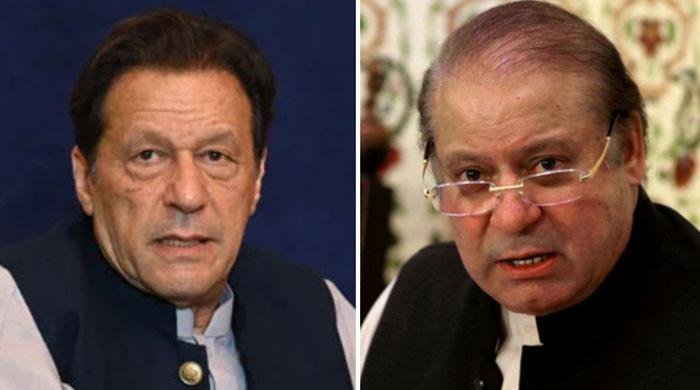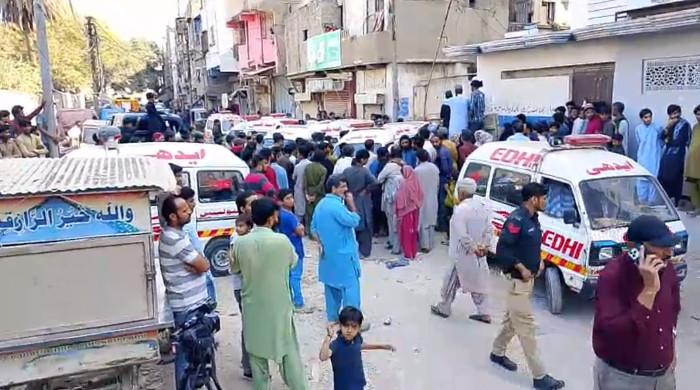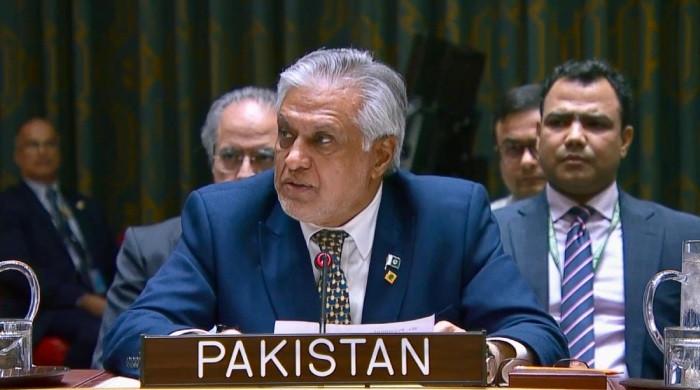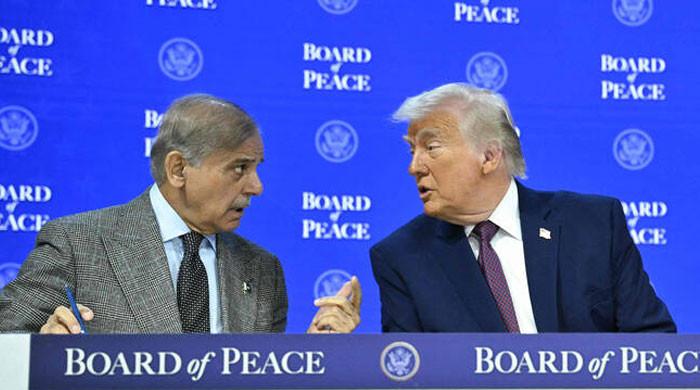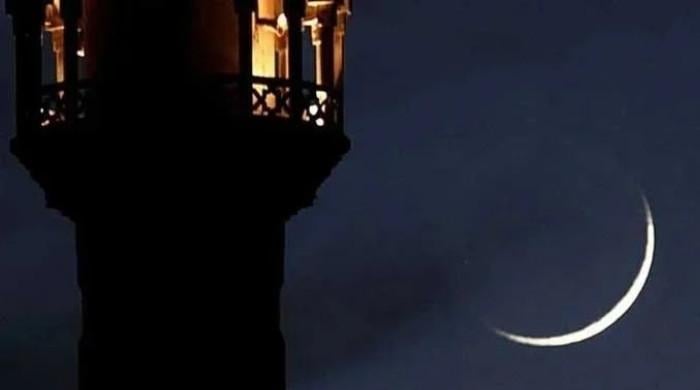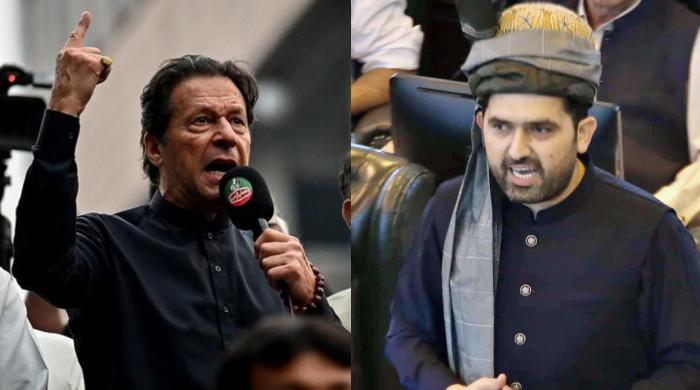Identity, institutions, privilege: Politics and free speech on campus
Pakistan suffers today because a privileged class thinks that politics is the forte of some unknown people and being apolitical is the best way to live peacefully
March 11, 2020
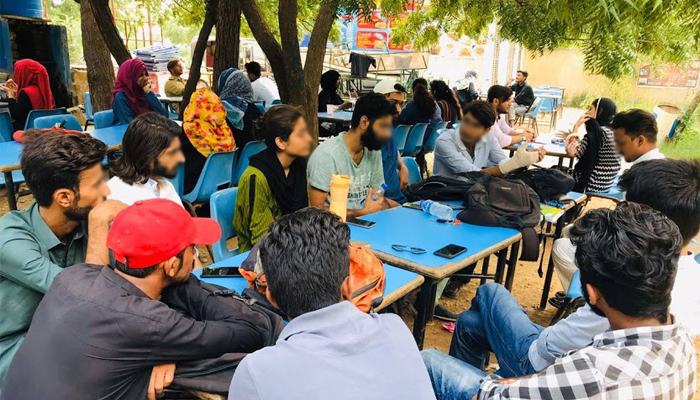
In the 69 years, since it was first set up, the University of Karachi has developed a reputation: for attracting students who think critically and for being a centre of political activism in the city.
That is primarily why my parents, at first, hesitated to let me enrol in 2014. But I was adamant and curious to observe the on goings first-hand.
Now, I must admit that I came from a privileged background, which had safeguarded and shielded me from politics. For most of my life, I was apolitical. The power corridors, I imagined, were only for those yearning for wealth and fame.
But was I wrong, and the University made sure I learned that.
On my first day, I noticed and appreciated the diversity of students. The young men and women around me belonged to a wide-range of ethnicities and social backgrounds.
Seated next to me, in my psychology class, was a young man who used to sell clothes at a small shop in North Nazimabad. The fact that he could afford the same education as students from elite and upper-middle class institutes, like Beaconhouse and Karachi Grammar School, was very encouraging. Also, to ensure no one is left behind, all college books and handouts were easy to buy and not too expensive.
But there was also an unmistakable domination of the campus by the All Pakistan Muttahida Students Organization (APMSO) and the religious group, the Islami Jamiat Talaba (IJT).
As a tradition, it seemed, all new students were welcomed by women from IJT, who handed out pamphlets on Islamic guidance. They also invited us to a girls-only welcome party held every year.
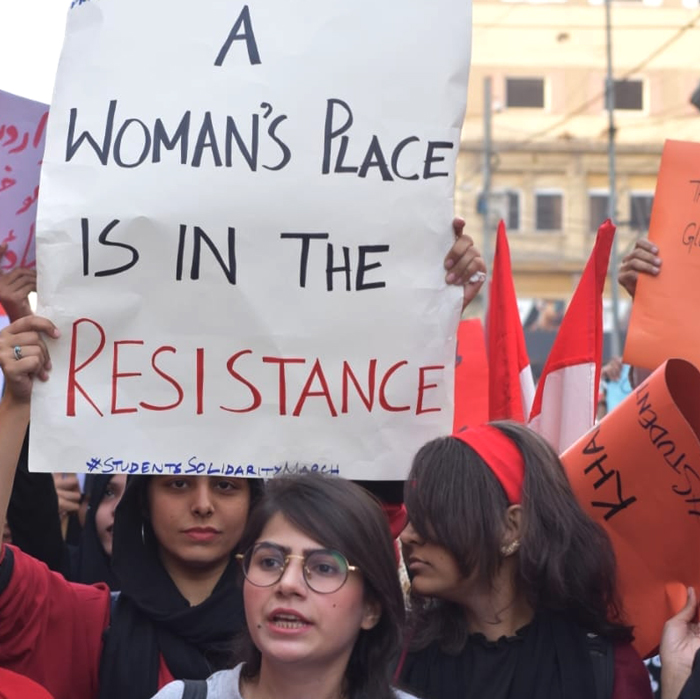
Not too long after joining the university, I witnessed my first on-campus riot and protest. That day Dr. Shakil Auj, an Islamic scholar, was shot dead in the Gulshan-e-Iqbal area of the city. Many students at the university were stranded in their classrooms after classes were suspended. Outside, the roads were blocked.
I have never been in such a situation. People around me were talking in hushed voices. No one knew what would happen next or when we will get home.
I don’t think I have ever been more scared in my life. Still, I did not call my parents, as it would directly threaten my travelling and attendance because of their fear for my safety. So, for the next few days, I lied to them. I told them everything was okay. I did not want my movement restricted.
In our society it is always easier to remove a woman from a public place when circumstances threaten her, rather than fixing the situation that hinders her life.
From that day on, I began to acknowledge and understand the dynamics of politics. I began to realise how privileged I was to be able to never feel the need to take an interest in politics. Studying at a university was a luxury for me, and even choosing liberal arts as a subject was a luxury, something that was not possible for thousands of young men and women in Pakistan.
For me, being apolitical was a choice.
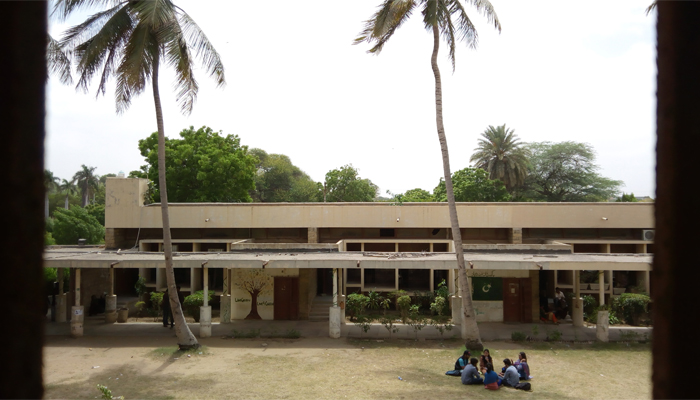
I graduated from University in 2017 with an M.A in English Literature. But more importantly I graduated with the gift of awareness and acceptance – acceptance of others.
I have been extremely thankful and appreciative of the eye-opening experience. I gained a one-of-a-kind perspective that I would have never nurtured had I not studied at a public sector university.
Last year, I returned to KU as a teacher. To ensure my course was more inclusive, I set out to teach empathy, gender equality, and the willingness to include disability and sexual diversity on campus.
From day one, I made it clear to my students that they could be comfortable with me when they talked about Marxism, feminism, or any other –isms they liked. That made some men and women in my class squirm, especially those who were affiliated with political groups at the university.
Still, in my classroom we talked about politics after reading Manto’s Toba Tek Singh or about Elizabeth Blackwell’s admission to a medical university that did not accept women.
But more often than not, college political activism revolves around things that concern campus life. When the surveillance and harassment scandal at University of Balochistan happened, there was immediate action and call for protest.
At my university, I had already been listening to complains from young women about the harassment they faced from the authorities who would not let them access libraries in the evening. I decided to offer my support in the shape of posters that highlighted the issue of women’s education, and how it was being jeopardised.
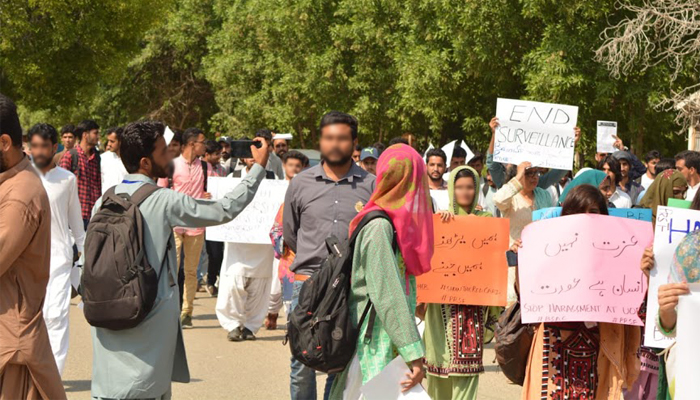
All of these debates and conversations translated into a student march on November 29 — the first of its kind at the University of Karachi.
It was an event that was bound to happen, owing to the constant building up of issues like fee hikes, budget cuts, cancellation of scholarships and many other acts of oppression that were directed at students. For the first time since student unions were banned, the students’ voices could be heard.
Today, I am still asked: what are student unions and how can they help?
No one tells these young men and women that through unions they can demand their rights and practice democracy in a microcosm, that it would translate into the real world. Politics, I tell them, isn’t only exercised through violence.
The country today is suffering because a privileged class thinks that politics is the forte of some unknown people, and being apolitical is the best way to live peacefully. Brilliant students bow their heads in the face of extremism and violence to study quietly in one corner.
Students think that politics is a waste of time, when it is the very ideology that governs their existence.
‘A woman’s place is in the resistance,’ I say!
—Izhar is a professor at the University of Karachi and tweets @UnitedsFreak





